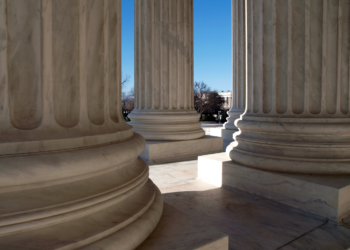Commercial asteroid mining will be possible in the near future. Asteroids contain valuable concentrations of platinum and other minerals. One asteroid containing 90 million tons of platinum recently passed closer to the Earth than the nearest planet. Platinum recently traded at close to $900 per ounce. Thus, it is not surprising that there are several companies working on the space vehicles and technology needed for space mining.
The daunting technical challenges aside, the key question is whether companies can legally mine asteroids. If the answer is not a clear yes, investors may not fund the needed technology. Unfortunately, most attorneys would probably answer this question, maybe, or maybe not. How did the state of law get to this unhelpful result? The story begins with the Soviet Union’s launch of Sputnik. It is hard today to understand the angst and fear this launch, and visions of a nuclear arms race in space, created in the United States at the height of the Cold War. Likewise, the Soviet Union was equally afraid of the United States’ space abilities in the future. Given this reality, the goal for both the Soviet Union and the United States in negotiating the Outer Space Treaty of 1967 (OST) was a nuclear free space with little consideration of future commercial activity in space.
How does the OST restrict space mining? The OST effective in 1967 and signed by all space-capable nations, states in Article I that “the exploration and use of outer space, including the moon and other celestial bodies, shall be carried out for the benefit and in the interests of all countries, irrespective of their degree economic or scientific development, and shall be the province of all mankind.” Article II is problematic for mining stating, “Outer space, including the moon and other celestial bodies, is not subject to national appropriation by claim of sovereignty by means of use or occupation, or by any other means.” Numerous scholars believe Article II precludes space mining.
In 2015, in order to facilitate commercial development of space, President Obama signed the United States Commercial Space Launch Competitiveness Act (USCSLCA). This statute allows U.S. companies to own and sell the materials they extract from celestial bodies. The USCSLCA attempts to avoid a conflict with the OST by stating that companies may not own an asteroid or other celestial body and that nothing in the statute is intended to be contrary to international law. Does this statute achieve its goal of making space mining unquestionably legal?
The answer is sadly no. Legal scholars line up on both sides, each with reasonable arguments. Some argue that mining is allowed stating: (1)the OST permits the “use” of outer space by nongovernmental entities; (2) there is no suggestion in the OST that commercial activities are banned; (3) the OST specifically allows countries to regulate the use of outer space by companies within their borders; (4) asteroids don’t qualify as celestial bodies; (5) taking minerals from an asteroid is not the “appropriating” prohibited by the OST; (6) the presence of commercial satellites in limited orbit windows already reflects commercial use of space; and (7) six Apollo Moon landings already brought back hundreds of pounds of lunar material.
Others argue: (1) the plain language of OST, specifically the ban on appropriation, prohibits both government and private persons from claiming title to an asteroid or the minerals contained within; (2) a U.S. citizen attempted to claim an asteroid and charge NASA a fee when NASA landed a satellite on the asteroid, and NASA and the State Department both responded that the OST states that outer space is not subject to national appropriation by claim of sovereign, by means of use or occupation, or by any other means; and (3) the OST must be interpreted in light of the 1959 Antarctic Treaty, as this was the acknowledged model for the OST, and this treaty precluded commercial development of the Antarctic.
Attempting to definitively answer this complex legal question is outside the scope of this short article. However, the presence of this legal issue is a drag on the development of this promising technology and may chill needed investment. More importantly, there are serious rule of law implications. Given the money at stake, asteroids will be mined. If world’s nations can come to together and create a new treaty that addresses, allows, and regulates space mining, it will enhance the rule of law. If this doesn’t happen, space mining will still happen, but will occur in a chaotic and dangerous gold rush atmosphere, that will diminish the rule of law, and potentially create dangerous conflicts over space minerals. Jim Caine







